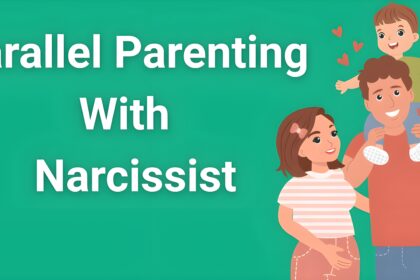When a narcissistic parent experiences what psychologists call a “collapse,” the entire family dynamic shifts into dangerous territory. Narcissistic collapse symptoms in parents manifest as extreme emotional breakdowns that can leave adult children feeling confused, terrified, and questioning their own reality. Unlike typical parental stress or occasional emotional outbursts, narcissistic collapse represents a complete psychological unraveling that often follows a perceived threat to the parent’s inflated self-image.
- What Is Narcissistic Collapse?
- Why Narcissistic Parents Experience Collapse
- 12 Warning Signs of Narcissistic Collapse Symptoms in Parents
- Overt vs. Covert Narcissistic Collapse in Parents
- How Narcissistic Parent Collapse Affects Adult Children
- What to Do When You Recognize These Signs
- Protecting Your Children from Grandparent Narcissistic Collapse
- The Road to Recovery and Healing
- Frequently Asked Questions
- Moving Forward with Clarity and Strength
This breakdown doesn’t happen quietly behind closed doors. The explosive or withdrawn behaviors that emerge during these episodes can traumatize family members for years to come. Understanding these warning signs isn’t just about recognition—it’s about protection, validation, and ultimately, your path to healing.
What Is Narcissistic Collapse?
Narcissistic collapse occurs when a person with narcissistic personality traits experiences a devastating blow to their carefully constructed false self. For narcissistic parents, this psychological crisis typically emerges when their primary sources of validation—often their own children—begin to challenge their authority, set boundaries, or simply grow into independent adults.
The collapse represents a complete breakdown of the defensive mechanisms that narcissistic individuals use to maintain their grandiose self-image. When these defenses fail, the fragile ego beneath becomes exposed, leading to intense shame, rage, or depressive episodes that can last anywhere from hours to months.
The Psychology Behind Parental Narcissistic Breakdown
Narcissistic parents rely heavily on what experts call “narcissistic supply”—the constant flow of admiration, attention, and validation they require to function. Children often become primary sources of this supply, expected to reflect their parent’s greatness back to them through achievements, compliance, and unconditional devotion.
When this supply is threatened or interrupted, the narcissistic parent’s entire psychological foundation crumbles. The resulting breakdown often involves intense emotional dysregulation, desperate attempts to regain control, and behaviors that can range from manipulative to genuinely dangerous.
Why Narcissistic Parents Experience Collapse
Several specific triggers can precipitate narcissistic collapse symptoms in parents, many of which revolve around challenges to their parental authority or public image:
Loss of Control Over Children: When adult children establish boundaries, limit contact, or make independent decisions that contradict the parent’s wishes, it can trigger a severe narcissistic injury.
Public Exposure or Criticism: Being called out for abusive behavior, whether privately by family members or publicly through social media or legal proceedings, can shatter their carefully maintained facade.
Aging and Physical Decline: The natural aging process can threaten a narcissistic parent’s sense of superiority and control, particularly if they’ve built their identity around physical appearance or professional prowess.
Financial or Professional Setbacks: Job loss, retirement, or economic difficulties can strip away external sources of validation that narcissistic parents depend upon.
Death or Illness: Confronting mortality, either their own or that of a loved one, can trigger existential crises that their grandiose defenses cannot handle.
12 Warning Signs of Narcissistic Collapse Symptoms in Parents
1. Explosive Rage Episodes That Feel Dangerous
When narcissistic parents collapse, their anger transcends normal parental frustration. These rage episodes often involve screaming, threats, property destruction, or even physical aggression. The intensity feels disproportionate to any triggering event, and family members may fear for their safety.
During these episodes, the parent may make threats about cutting off financial support, changing their will, or destroying relationships with other family members. The rage often targets whoever they perceive as responsible for their narcissistic injury.
2. Complete Emotional Withdrawal and Silent Treatment
Some narcissistic parents collapse inward, becoming completely unavailable emotionally or physically. This withdrawal serves as both self-protection and punishment for those who “caused” their distress. They may refuse to speak to family members for days, weeks, or even months.
This silent treatment creates a psychological prison for family members who find themselves walking on eggshells, desperately trying to figure out what they did wrong and how to “fix” the relationship.
3. Dramatic Victim Narratives and Sob Stories
Collapsed narcissistic parents often craft elaborate stories positioning themselves as the ultimate victim. They may claim that their children are ungrateful, that they’ve sacrificed everything for their family, or that they’re being persecuted by everyone around them.
These narratives serve to garner sympathy while deflecting responsibility for their own behavior. Family members often find themselves feeling guilty and confused, wondering if they really are the problem.
4. Desperate Attempts to Regain Control Through Manipulation
As their world crumbles, narcissistic parents may resort to increasingly manipulative tactics to restore their sense of power. This might include love-bombing followed by devaluation, guilt-tripping, threats of self-harm, or attempts to triangulate family members against each other.
The manipulation often intensifies during holidays, birthdays, or other significant family events when the parent expects maximum attention and compliance.
5. Self-Harm Threats or Suicidal Ideation
Perhaps the most alarming narcissistic collapse symptoms in parents involve threats of self-harm or suicide. These threats often emerge when other manipulation tactics fail to restore the parent’s sense of control or when they face the possibility of permanent estrangement from their children.
While these threats should always be taken seriously, they frequently serve as emotional blackmail designed to force family members back into compliance with the parent’s demands.
6. Complete Breakdown of Personal Hygiene and Self-Care
During a narcissistic collapse, parents who previously maintained meticulous appearances may completely abandon self-care. They might stop bathing, changing clothes, or maintaining their living space. This breakdown reflects their internal psychological disintegration.
This neglect can be particularly jarring for family members who are accustomed to seeing their narcissistic parent as polished and put-together.
7. Obsessive Rumination About Past Grievances
Collapsed narcissistic parents often become fixated on perceived injustices, replaying conversations and conflicts obsessively. They may bring up decades-old incidents, rewriting history to position themselves as the wronged party in every situation.
This rumination serves to validate their victim narrative while avoiding any responsibility for their role in family dysfunction.
8. Paranoid Thinking and Conspiracy Theories
During collapse episodes, narcissistic parents may develop paranoid beliefs about family members, friends, or even strangers conspiring against them. They might accuse their adult children of plotting to steal their money, ruin their reputation, or turn other family members against them.
This paranoid thinking reflects their underlying shame and fear of exposure, projected outward as external threats.
9. Substance Abuse or Addictive Behaviors
Many narcissistic parents turn to alcohol, drugs, or other addictive behaviors during collapse episodes as a way to numb their psychological pain. This self-medication often exacerbates their emotional instability and can lead to increasingly dangerous situations for all family members.
The addiction becomes another tool for manipulation, as family members feel compelled to enable the behavior to prevent further deterioration.
10. Extreme Mood Swings and Emotional Volatility
Narcissistic collapse symptoms in parents often include rapid cycling between different emotional states. A parent might shift from rage to sobbing to apparent normalcy within hours, leaving family members feeling dizzy and confused.
These mood swings make it impossible for family members to predict or prepare for the parent’s reactions, creating a constant state of hypervigilance and anxiety.
11. Desperate Attempts to Recruit Flying Monkeys
During a collapse, narcissistic parents often reach out to extended family members, family friends, or other acquaintances to validate their victim narrative and pressure their children to reconcile. These recruited allies, known as “flying monkeys,” become unwitting participants in the manipulation.
Family members may find themselves fielding calls from relatives demanding to know why they’re “being so cruel” to their parent, adding another layer of confusion and guilt to an already difficult situation.
12. Complete Loss of Empathy and Emotional Reciprocity
While narcissistic parents typically struggle with empathy, during a collapse this deficit becomes absolute. They become completely incapable of considering how their behavior affects others, focused entirely on their own pain and need for validation.
This absence of empathy can be particularly devastating for family members who may still hold hope that their parent can develop genuine emotional connection.
Overt vs. Covert Narcissistic Collapse in Parents
The way narcissistic collapse symptoms in parents manifest depends largely on whether the parent exhibits overt or covert narcissistic traits.
Overt Narcissistic Parent Collapse
Overt narcissistic parents typically collapse in dramatic, explosive ways. Their breakdowns are impossible to ignore and often involve:
- Public scenes and embarrassing outbursts
- Aggressive confrontations with family members
- Grandiose declarations about their superior suffering
- Attempts to punish family members through dramatic gestures
Covert Narcissistic Parent Collapse
Covert narcissistic parents tend to collapse more subtly, often through:
- Passive-aggressive withdrawal and sulking
- Martyr-like suffering designed to induce guilt
- Subtle manipulation through apparent helplessness
- Depression and anxiety that becomes everyone else’s responsibility
Both types of collapse can be equally damaging to family relationships, though covert collapses often take longer to recognize and address.
How Narcissistic Parent Collapse Affects Adult Children
Witnessing narcissistic collapse symptoms in parents can be profoundly traumatic for adult children, triggering a complex mix of emotions including guilt, fear, relief, and confusion. Many adult children report feeling responsible for their parent’s breakdown, even when they logically understand they are not to blame.
The collapse often represents a moment of clarity where the parent’s true nature becomes undeniably apparent. This recognition can be both validating and devastating, as it confirms years of gaslighting and emotional abuse while simultaneously destroying any remaining hope for a healthy parent-child relationship.
Long-Term Impact on Mental Health
Adult children of narcissistic parents who have witnessed collapse episodes often struggle with:
- Complex PTSD symptoms
- Difficulty trusting their own perceptions
- Chronic guilt and self-blame
- Anxiety about setting boundaries with others
- Depression and feelings of worthlessness
These impacts can persist for years without proper support and understanding of the dynamics involved.
What to Do When You Recognize These Signs
Recognizing narcissistic collapse symptoms in parents is the first step toward protecting yourself and your family. Here are essential strategies for managing these situations:
Prioritize Your Safety
If your parent’s collapse involves threats of violence or actual physical aggression, remove yourself and your family from the situation immediately. Trust your instincts—if something feels dangerous, it probably is.
Document Everything
Keep detailed records of incidents, including dates, times, witnesses, and specific behaviors. This documentation can be crucial if you need to involve law enforcement or seek legal protection.
Establish Firm Boundaries
Collapsed narcissistic parents often become more manipulative and demanding. This is precisely when you need the strongest boundaries. Decide what contact (if any) you’re comfortable maintaining and stick to those limits.
Seek Professional Support
A therapist experienced in narcissistic abuse can help you process the trauma of witnessing your parent’s collapse while developing healthy coping strategies. Support groups for adult children of narcissistic parents can also provide valuable validation and guidance.
If you’re struggling to make sense of your parent’s behavior and need expert validation of what you’re experiencing, consider getting professional analysis through a comprehensive assessment. Understanding the specific patterns of manipulation and abuse in your situation can provide crucial clarity and help you develop an effective protection strategy.
Build Your Support Network
Narcissistic parent collapse often involves attempts to isolate family members and turn them against each other. Maintaining connections with supportive friends, other family members, and mental health professionals becomes crucial during these periods.
Focus on Your Own Healing
Breaking free from the trauma bond that often develops with narcissistic parents requires dedicated effort and often professional support. Consider resources specifically designed to help survivors of narcissistic abuse recover their sense of self and develop healthy relationship patterns.
A structured approach to healing from trauma bonds can provide day-by-day guidance for breaking free from the psychological chains that keep you connected to toxic family dynamics, even when you know the relationship is harmful.
Protecting Your Children from Grandparent Narcissistic Collapse
If you have children who have a relationship with a narcissistic grandparent, their collapse can be particularly confusing and frightening for young minds. Children may blame themselves for the grandparent’s behavior or feel torn between loyalty to you and their grandparent.
Consider limiting or supervising visits during collapse periods, and always debrief with your children afterward. Help them understand that the grandparent’s behavior is not their fault and that adults are responsible for managing their own emotions.
The Road to Recovery and Healing
Witnessing narcissistic collapse symptoms in parents can be a catalyst for your own healing journey. While traumatic, these episodes often provide undeniable evidence of the toxic dynamics you may have been questioning for years.
Many adult children report that their parent’s collapse, while painful, ultimately freed them from the obligation to maintain a relationship that was harming their mental health. This recognition can be the beginning of a journey toward authentic self-discovery and healthier relationships.
For those who cannot immediately distance themselves from a narcissistic parent due to financial dependence, caregiving responsibilities, or other constraints, developing a comprehensive survival strategy becomes essential for maintaining your mental health while navigating these challenging dynamics.
Frequently Asked Questions
Q: How long do narcissistic collapse episodes typically last?
A: Episodes can range from hours to months, depending on the severity of the narcissistic injury and whether the parent receives the validation they’re seeking to restore their equilibrium.
Q: Can narcissistic parents recover from a collapse?
A: While they may regain their composure, true recovery requires genuine self-reflection and therapy, which most narcissistic individuals resist due to their inability to acknowledge flaws.
Q: Should I try to help my parent during a collapse?
A: Prioritize your own safety and mental health. Professional intervention is typically more appropriate than family member involvement, which often enables the manipulation.
Q: Is it normal to feel guilty when setting boundaries during a parent’s collapse?
A: Yes, guilt is a common response due to years of conditioning. Remember that maintaining boundaries is essential for your wellbeing and actually healthier for everyone involved.
Q: Can witnessing narcissistic collapse cause PTSD?
A: Yes, these episodes can be genuinely traumatic, particularly for adult children who experienced childhood abuse. Professional support can help process these experiences effectively.
Moving Forward with Clarity and Strength
Understanding narcissistic collapse symptoms in parents empowers you to respond to these episodes with clarity rather than confusion. You are not responsible for your parent’s emotional regulation, and you cannot love, fix, or enable them into psychological health.
Recognizing these patterns is often the first step toward breaking generational cycles of abuse and creating the healthy, authentic relationships you deserve. While the journey toward healing can be challenging, it leads to a life free from the constant chaos and manipulation that characterize relationships with narcissistic parents.
Your mental health, your family’s safety, and your right to peaceful relationships matter. Trust your instincts, seek professional support when needed, and remember that choosing your own wellbeing over a toxic family dynamic is not selfish—it’s necessary for your survival and grow






